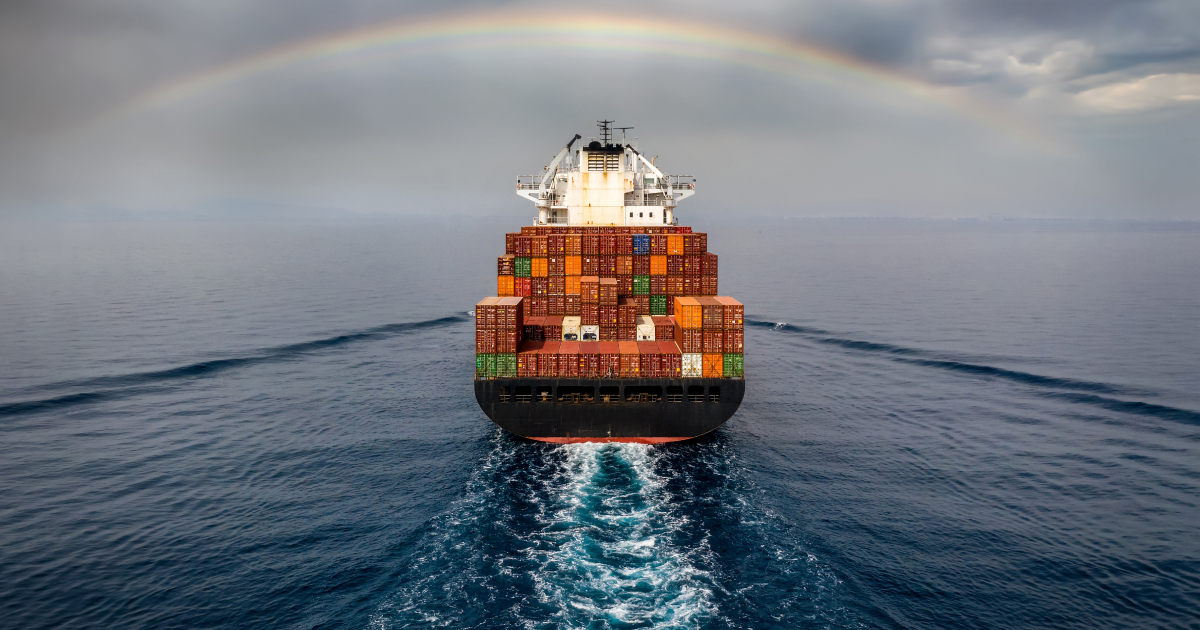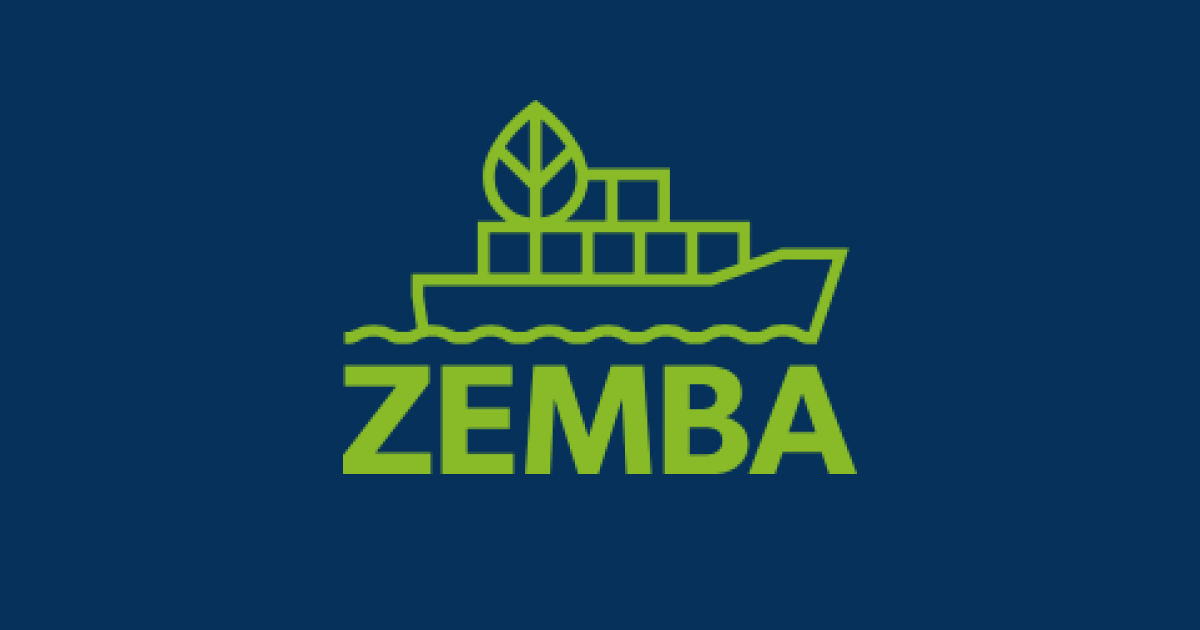Cargo Owners for Zero Emission Vessels (coZEV) Unites 19 Global Brands for 2040 Zero-Carbon Ocean Shipping Ambition
Posted September 22, 2022 • coZEV
Electrolux, Philips, REI, Target, and others join Aspen Institute and climate-leading cargo owners to more than double the number of signatories to the 2040 Ambition Statement to accelerate maritime shipping decarbonization.
[NEW YORK, NEW YORK] — Cargo Owners for Zero Emission Vessels (coZEV) is proud to announce the addition of Beiersdorf, Dupont, Electrolux, ETTLI Kaffee, Moose Toys, Ohana Beverage Company, Philips, REI Co-op, Sisley, and Target to its 2040 Ambition Statement, the first-of-its-kind call to action from cargo owners to progressively switch all of their ocean freight to vessels powered by zero-carbon fuels by 2040. These multinational companies join Amazon, Brooks Running, Frog Bikes, IKEA, Inditex, Michelin, Patagonia, Tchibo, and Unilever, bringing the total to 19 companies that are sending an important signal of urgency across industries to accelerate decarbonization of the maritime value chain. This announcement of new signatories more than doubles the number of companies that have signed onto the coZEV 2040 Ambition Statement, an initiative facilitated by the Aspen Institute.
“In less than a year, coZEV has changed the narrative surrounding decarbonization in maritime shipping,” said Dan Porterfield, President and CEO of the Aspen Institute. “Through coZEV, cargo owners are kickstarting a clean energy transition in this critical industry, and the Aspen Institute is proud to support them and help enable their success.”
After a successful launch in October 2021, coZEV has begun to demonstrate the business case for investment in scalable zero-emission fuels and technologies capable of achieving full maritime industry decarbonization on a Paris-aligned trajectory. In the months following the coZEV 2040 Ambition Statement announcement, several of the largest container carriers in the world announced plans to build and launch new transoceanic dual fuel container ships capable of using zero-emission fuels by the middle of this decade. Numerous zero-emission fuel production plans were also announced by maritime fuel producers and major bunkering hubs around the world. Across the entire value chain, cargo owners drove higher ambition and supported new partnerships, such as the Los Angeles – Shanghai Green Shipping Corridor Partnership and the maritime shipping commitments of the First Movers Coalition, both of which are partners of the Aspen Institute, facilitator of coZEV.
coZEV also organized signatories IKEA, Unilever, and Tchibo to call on policymakers in the European Union to raise the ambition of its FuelEU Maritime Proposal to accelerate maritime decarbonization and provide incentives for the deployment and rapid scaling of zero-emission e-fuels.
“Support for maritime decarbonization has grown swiftly in just a short time due to the bold, climate-leading companies that are making their climate ambitions as freight customers clear to maritime carriers, fuel producers, ports and other value chain actors,” said Ingrid Irigoyen, Director of coZEV and the Aspen Shipping Decarbonization Initiative, which is an initiative of the Aspen Institute’s Energy and Environment Program. “The global economy’s maritime decarbonization journey is still in its early stages, but such progress in less than a year confirms for us that cargo owners can drive impact quickly when they come together. We are so pleased to welcome these new signatories, all important global brands, and look forward to helping support their leadership in the maritime decarbonization space.”
“By joining the coZEV 2040 ambition to eliminate maritime greenhouse gas emissions by 2040 we want to emphasize that we will continue working collaboratively with the industry to achieve zero-emission maritime shipping,” said Vanessa Butani, VP Electrolux Sustainability. “The coZEV’s 2040 ambition is clearly aligned with our own goal of becoming climate neutral in our operations by 2030 and across our value chain by 2050. Meaningful partnerships with like-minded leaders from every sector who are dedicated to investing in innovative and impactful climate solutions are key to our success.”
"Healthcare systems are responsible for a significant portion of today’s carbon emissions. As a purpose-driven health technology company, at Philips we recognize the threat of climate change and the effects it can have on human health. In 2020 we achieved our goal of becoming 100% carbon-neutral in our operations and sourcing all our electricity from 100% renewable sources,” said Robert Metzke, Global Head of Sustainability at Philips. “We collaborate with our customers and suppliers to reduce CO2 emissions across our value chain in line with a 1.5 °C global warming scenario. We aim to get 50% of our suppliers to commit to science-based targets by 2025. Today, we are thrilled to join like-minded organizations and become a signatory to the coZEV’s 2040 Ambition Statement. Low-carbon ocean freight solutions are critical for sustainable healthcare supply chains."
“REI is thrilled to join a network of climate-forward leaders who are amplifying the role cargo owners can play in furthering the clean energy transition in maritime shipping,” said Kate Wendt, Vice President of Strategy, Planning & Sustainability, REI Co-op. “We believe the climate crisis is a direct threat to the future of life outside, and as a result, our business. We have committed to a science-aligned target to more than half our carbon footprint by 2030, and to being a carbon neutral organization. In becoming a signatory to coZEV’s 2040 Ambition Statement, we are prioritizing our desire to reduce a globally significant source of carbon emissions. We are excited to be a part of this initiative and look forward to accelerating the creation and adoption of carbon-free fuel sources in maritime shipping.”
“Partnering with coZEV is a natural extension of our work to co-create solutions that deliver growth and positive impact across industries,” said Amanda Nusz, Senior Vice President of Corporate Responsibility for Target and President of the Target Foundation. “We are committed to being a net zero enterprise by 2040, with net zero emissions across both our operations and supply chain. Joining coZEV is an important part of accelerating our work to create a more sustainable, circular supply chain that furthers the health of our business and the global community.”
As other major sectors of the global economy reduce greenhouse gas emissions and enact more sustainable business practices, the maritime shipping sector is at risk of falling behind and increasing its share of global emissions - from 3% today to 10% by 2050. High ambition from corporate customers of the maritime industry is critical to ensure the transition to zero-emission fuels begins in earnest by the mid-2020s, achieves scalability by 2030, vastly outcompetes fossil-fuel powered shipping by 2040, and fully decarbonizes the maritime transport sector by 2050 at the latest.
“If we are to see a vast global fleet of zero-emission vessels on the water by 2040, we need accelerated investment in that transition today,” said Irigoyen. “This growing roster of coZEV 2040 signatories that represent a wide range of industries, boosts our sense of optimism that we can eliminate the climate impact of even the hardest to abate sectors. But first mover action in this space isn’t enough. We’re hopeful that global and regional policy action, such as the recently passed Inflation Reduction Act in the United States, the ongoing discussions in the European Union on their Fit For 55 policy, and the upcoming International Maritime Organization meetings, provide concrete policy wins that match cargo owners’ ambition to achieve the clean energy future we all deserve.”
###
About Aspen Institute
Aspen Institute is a global nonprofit organization committed to realizing a free, just, and equitable society. Founded in 1949, the Institute drives change through dialogue, leadership, and action to help solve the most important challenges facing the United States and the world. Headquartered in Washington, DC, the Institute has a campus in Aspen, Colorado, and an international network of partners. For more information, visit www.aspeninstitute.org.
The Aspen Institute Energy and Environment Program’s Shipping Decarbonization Initiative (SDI) is partnering with leading organizations and companies from around the world, tapping into a vast network to drive the transition to zero emission maritime shipping and decarbonize one of the most important sectors of the global economy. Aspen SDI is convening multinational cargo owners to accelerate shipping decarbonization, elevating the need for shipping decarbonization within the U.S. policy context, and advancing the establishment of zero-carbon transoceanic maritime transport corridors.
About coZEV
Cargo Owner for Zero Emission Vessels (coZEV) is a platform for climate-leading, multinational companies to come together for high impact initiatives that accelerate the transition to zero-carbon maritime shipping. It is facilitated by the Aspen Institute. For more information, visit www.coZEV.org
About REI
REI is a specialty outdoor retailer, headquartered near Seattle. The nation’s largest consumer co-op, REI is a growing community of 21.5 million members who expect and love the best quality gear, inspiring expert classes and trips, and outstanding customer service. REI has 177 locations in 41 states and the District of Columbia. If you can’t visit a store, you can shop at REI.com, REI Outlet or the REI shopping app. REI isn’t just about gear. Adventurers can take the trip of a lifetime with REI’s active adventure travel company that runs more than 100 itineraries across the country. In many communities where REI has a presence, professionally trained instructors share their expertise by hosting beginner-to advanced-level classes and workshops about a wide range of activities. To build on the infrastructure that makes life outside possible, REI invests millions annually in hundreds of local and national nonprofits that create access to—and steward—the outdoor places that inspire us all.
About Royal Philips
Royal Philips (NYSE: PHG, AEX: PHIA) is a leading health technology company focused on improving people's health and well-being, and enabling better outcomes across the health continuum – from healthy living and prevention, to diagnosis, treatment and home care. Philips leverages advanced technology and deep clinical and consumer insights to deliver integrated solutions. Headquartered in the Netherlands, the company is a leader in diagnostic imaging, image-guided therapy, patient monitoring and health informatics, as well as in consumer health and home care. Philips generated 2021 sales of EUR 17.2 billion and employs approximately 79,000 employees with sales and services in more than 100 countries. News about Philips can be found at www.philips.com/newscenter.
About Electrolux
Electrolux is a leading global appliance company that has shaped living for the better for more than 100 years. We reinvent taste, care and wellbeing experiences for millions of people, always striving to be at the forefront of sustainability in society through our solutions and operations. Under our brands, including Electrolux, AEG and Frigidaire, we sell approximately 60 million household products in approximately 120 markets every year. In 2021 Electrolux had sales of SEK 126 billion and employed 52,000 people around the world. For more information go to www.electroluxgroup.com.
CONTACT: Clarke Williams
clarke.williams@aspeninstitute.org
+1-703-554-7378

